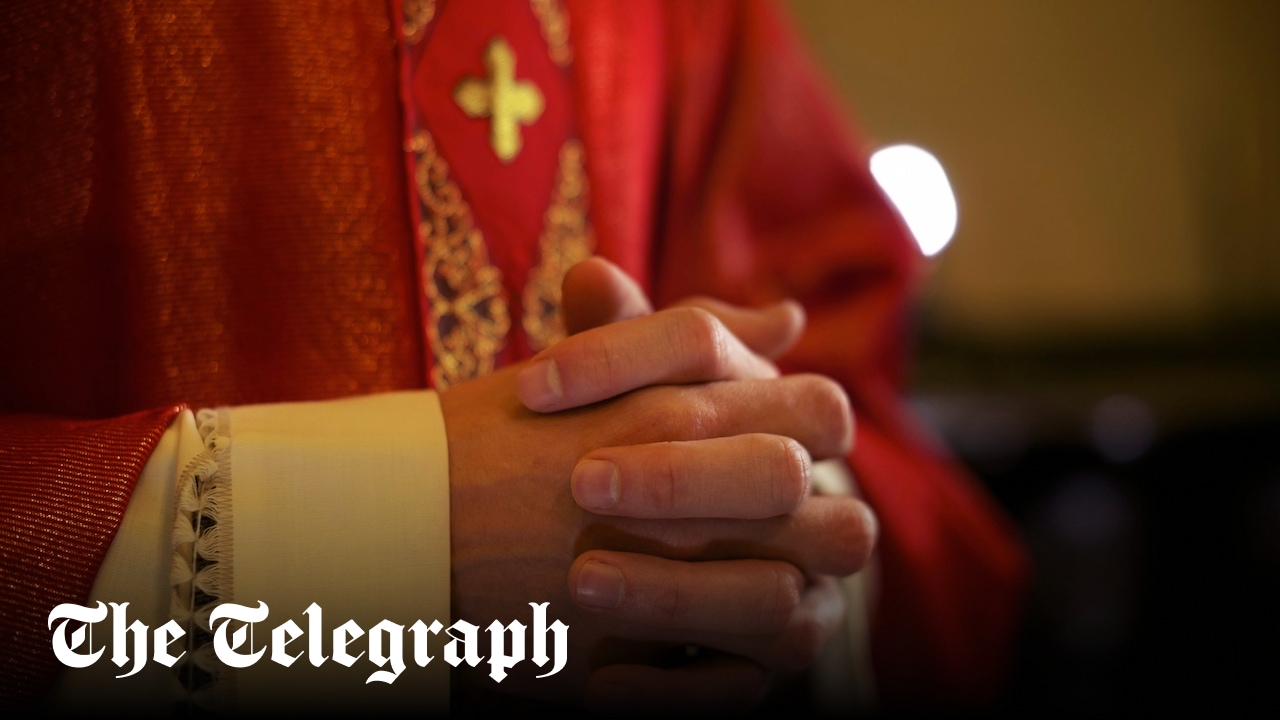Debaptism formalises a person’s abandonment of the Church. In Belgium it is noted on the register of baptisms, but the record of the original baptism remains.
The more than 1,000 per cent increase in debaptism requests comes after an influential documentary was broadcast in Belgium with interviews and testimonies from sex abuse survivors.
The Church said most cases of abuse in Belgium took place in the 1950s, 1960s and 1970s. It thinks that the Godvergeten documentary – which was aired in September 2023 – was influential in convincing people to come forward.
Some theologians argue a baptism cannot be reversed, while other critics say the register is a historical record, which should not be changed.
Decades of secrecy
However, the process has become increasingly popular across Europe with those wishing to register their opposition to the Church’s teaching on, for example, abortion or LGBT rights.
Debaptism has several consequences, including, according to believers, the loss of the chance of everlasting life.
The Church views it as apostasy; the public rejection of faith. An apostate faces being excluded from the sacraments, may not become a godparent and cannot have a Catholic funeral.
Pope Francis visited Belgium in September this year in a visit overshadowed by the abuse scandal and the legacy of decades of secrecy.
In unusually frank remarks, Alexander De Croo, the Belgian prime minister, warned the Pontiff that “words alone are not enough, concrete steps must also be taken”.
‘Not be hidden’
Francis later met with 17 victims of abuse, who asked him to set up a universal system of compensation for survivors.
The Pope used his only mass in Belgium to demand punishment for priests abusing children be punished and an end to church cover-ups.
“Evil must not be hidden. Evil must be brought out into the open,” he told 30,000 believers at a football stadium in Brussels.
